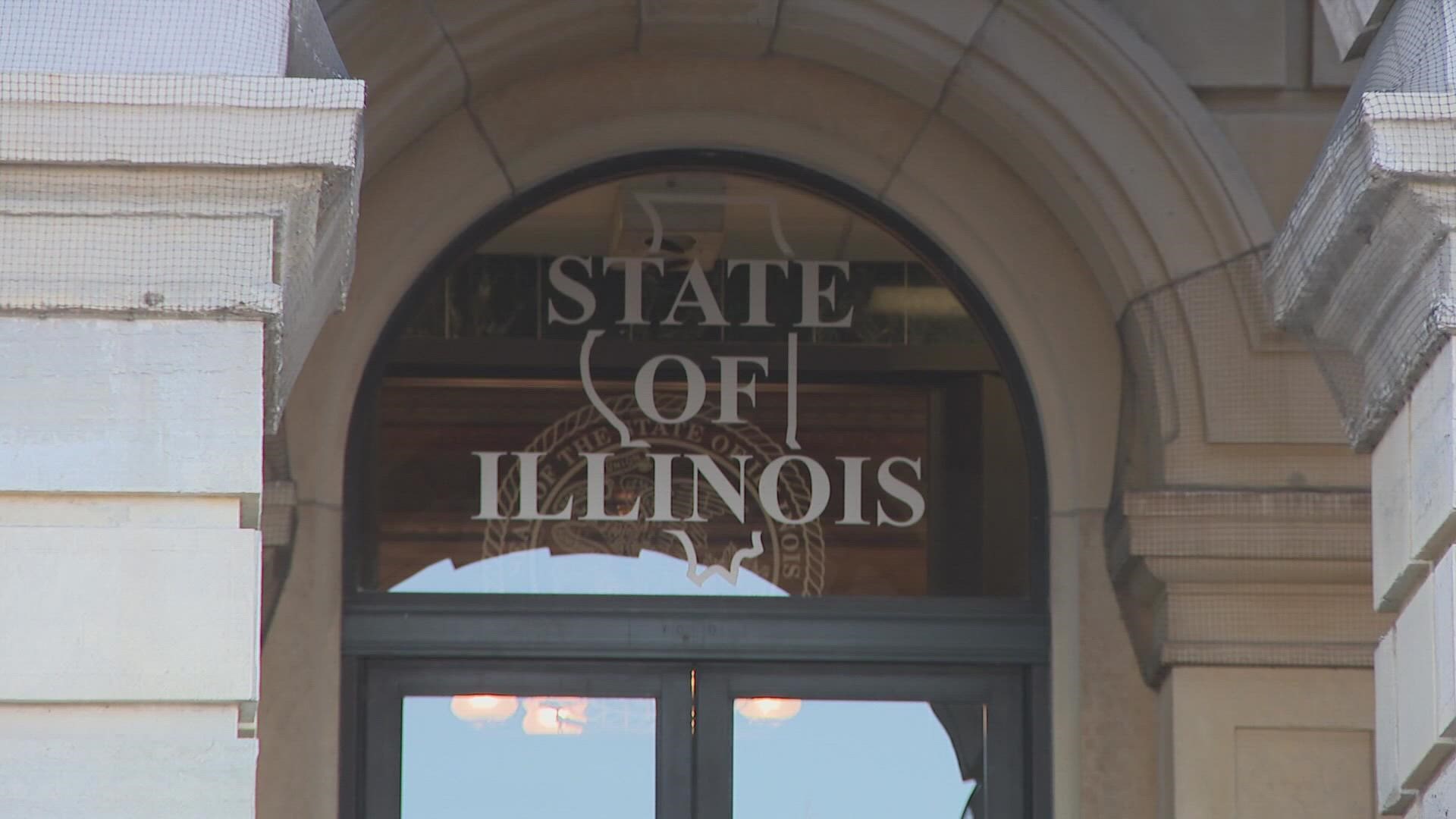ILLINOIS, USA — The Illinois Supreme Court on Tuesday upheld the constitutionality of a state law ending cash bail, ordering implementation in mid-September.
Editor's note: The above video aired during a previous broadcast.
The ruling overturns a Kankakee County judge's opinion in December that the law violated the constitution's provision that “all persons shall be bailable by sufficient sureties."
Supreme Court Chief Justice Mary Ann Theis delivered the court's opinion, approved 5-2, saying that the constitution “does not mandate that monetary bail is the only means to ensure criminal defendants appear for trials or the only means to protect the public.”
The General Assembly dominated by Democrats approved the plan in January 2021 as part of an expansive overhaul of the state's criminal justice system known as the SAFE-T Act. It followed the police-involved murders of George Floyd in Minnesota the previous spring.
Proponents of eliminating cash bail describe it as a penalty on poverty, suggesting that the wealthy can pay their way out of jail to await trial while those in economic distress have to sit it out behind bars.
Gov. J.B. Pritzker, on a trade mission to the United Kingdom, hailed a “transition to a more equitable and just Illinois.”
“We can now move forward with historic reform to ensure pre-trial detainment is determined by the danger an individual poses to the community instead of by their ability to pay their way out of jail,” Pritzker said in a statement.
The Kankakee County judge's ruling did not block implementation of the law, set to take effect on Jan. 1, 2023. The ruling sent the issue directly to the Supreme Court, which stopped its implementation while promising a quick resolution.
In her opinion of the case, known as Rowe v. Raoul, Theis ordered that the halt on the law be lifted 60 days after Tuesday's opinion, on Sept. 18, 2023.
“Our constitution creates a balance between the individual rights of defendants and the individual rights of crimes victims,” Theis wrote. “The act's pretrail release provisions set forth procedures commensurate with that balance.”
New Jersey essentially eliminated cash bail in 2014, replacing it with a risk assessment process which gauged the potential danger to the community a defendant posed if released. In Illinois, judges have the same discretion in multiple instances that involve violent or other serious crimes.
Justice David K. Overstreet dissented, arguing that the law violates the constitution's Crime Victims Bill of Rights, which voters added in 2014. He said it gives victims the right “to have their safety and the safety of their family, considered in denying or fixing the amount of bail.” Changing that requires voter approval, not just legislative fiat.
In spring 2020, the Illinois Supreme Court Commission on Pretrial Practices strongly endorsed bail reform, noting that found that a defendant who can’t afford bail sees his or her life unravel within days — loss of a job, loss of child custody, health problems without access to medication.
What’s more, the commission found that it tends to generate spurious plea deals. Defendants reason that pleading to a lower-level offense gets them out of jail sooner.
Critics have argued that bail is a time-honored way to ensure defendants released from jail show up for court proceedings. They have warned that violent criminals will be released pending trial, giving them license to commit other crimes. But Democrats have relented and added numerous violent crimes that would still be subject to cash bail.
Joining Theis in her opinion were Justices P. Scott Neville Jr., Joy V. Cunningham and Elizabeth M. Rochford. Justice Mary K. O'Brien specially concurred with her own opinion.
Justice Lisa Holder White joined Overstreet in his dissent.

